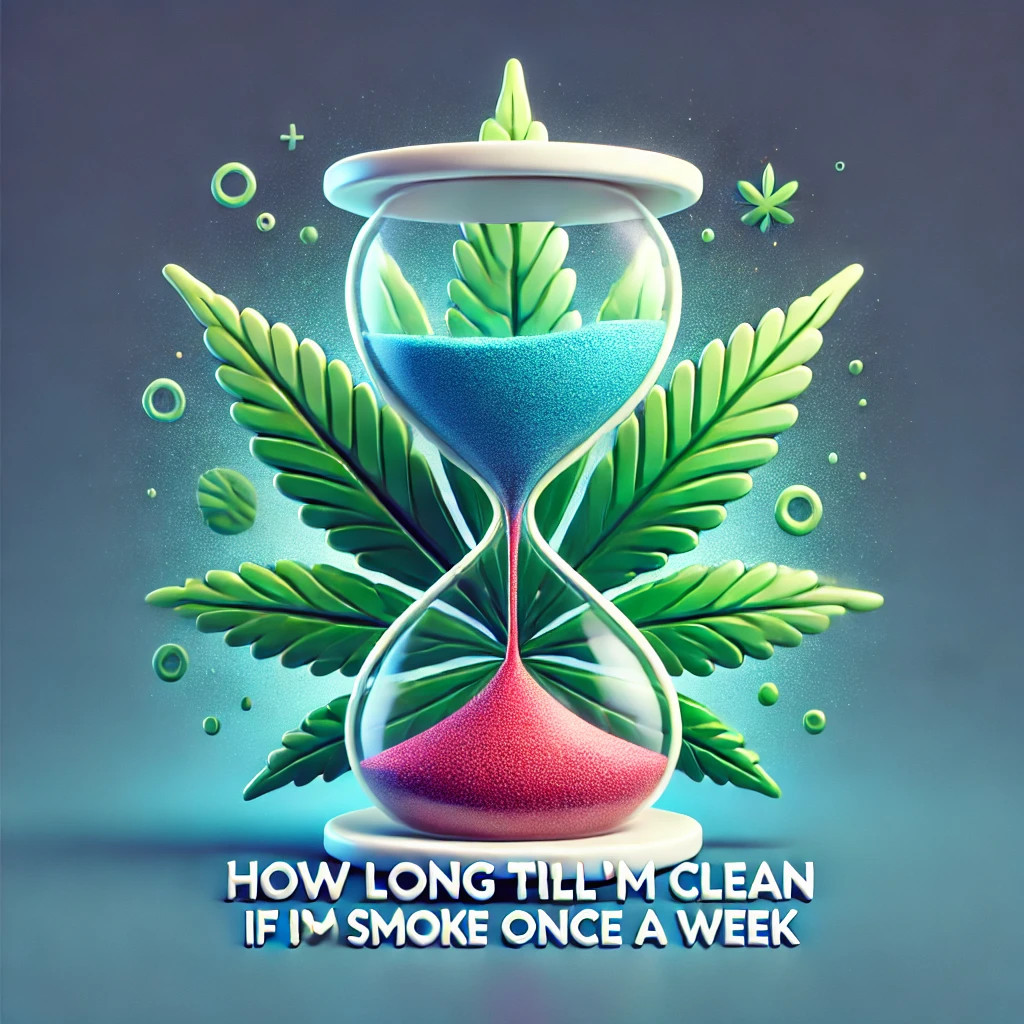Introduction
Occasional smoking, characterized by infrequent cigarette use such as once a week or during social gatherings, is often perceived as a harmless indulgence. Unlike regular smokers, occasional smokers believe they maintain control over their habit and avoid the significant risks associated with daily smoking. However, this behavior is prevalent, particularly in social settings where fitting in or coping with stress often triggers smoking. Despite its seemingly minimal nature, occasional smoking can have both psychological and physical impacts, raising important questions about its effects on health and how long it takes to recover.
Psychologically, even smoking once a week can establish habits that associate cigarettes with stress relief or social bonding. This creates behavioral triggers, making it harder to quit over time. While occasional smokers may feel in control, the habit often becomes a coping mechanism, reinforcing reliance on smoking in specific situations. Feelings of guilt or anxiety about smoking’s potential harm can also arise, adding to the psychological burden.
The relationship between smoking frequency and personality traits sheds light on why some individuals engage in occasional smoking. Personality influences how people handle stress, seek social interaction, or manage emotions. For instance, extroverts may smoke socially to strengthen connections, while introverts might use smoking to ease anxiety. Those with impulsive tendencies or heightened neuroticism are also more likely to smoke occasionally as a way of coping. By examining these personality traits, we gain a deeper understanding of the motivations behind occasional smoking and its potential evolution into a more frequent habit.
Health-wise, even minimal smoking is not without consequences. Cigarette smoke contains harmful substances like nicotine, tar, and carbon monoxide, which can cause lung and heart disease over time. Occasional smoking also increases the risk of addiction, as the body becomes accustomed to nicotine. Although the health effects may not be immediately apparent, the long-term damage is cumulative, emphasizing that no level of smoking is truly safe.
Societal perceptions contribute to the misconception that smoking once a week is relatively harmless. This view normalizes the behavior, particularly among younger individuals or in social settings. While society may deem occasional smoking acceptable, it doesn’t negate the risks, including the potential for addiction and chronic health problems.
A common question among occasional smokers is, “If I smoke once a week, how long till I’m clean?” Detoxification, the body’s natural process of eliminating toxins like nicotine, begins almost immediately after the last cigarette. However, the time it takes to fully “clean” varies. For light smokers, nicotine can leave the bloodstream in a few days, but its lingering effects on the body can persist for weeks or months. Factors like frequency of smoking, individual metabolism, and overall health also play a role.
Personality traits influence the quitting process and detoxification. Those who are disciplined and resilient may find it easier to quit, while impulsive individuals or those prone to stress may face greater challenges. Tailoring cessation strategies to personality can improve success rates, making it easier for individuals to overcome cravings and stay smoke-free.

1. What Constitutes Occasional Smoking?
Occasional smoking refers to infrequent cigarette use, often limited to once a week, during weekends, or in social gatherings. Many occasional smokers believe their habit is under control, viewing it as recreational and non-addictive. However, smoking even occasionally can have long-term consequences, paving the way for dependency. If you’ve ever wondered, “If I smoke once a week how long till I’m clean?”, it’s important to understand that even minimal exposure to nicotine can affect your body and health.
Social vs. Solitary Smoking Patterns
Occasional smokers typically indulge more in social settings than alone. Smoking in groups may feel justified due to peer pressure or social norms, reinforcing the habit as a bonding activity. Conversely, solitary smoking often stems from personal triggers like stress or anxiety. For those questioning, “If I smoke once a week how long till I’m clean?”, these social and personal factors play a significant role in how easily one can quit or avoid nicotine dependency.
Recreational vs. Habitual Smoking
Recreational smoking refers to occasional indulgence, often associated with pleasure or specific events. Habitual smoking, however, is marked by regular consumption and nicotine cravings. Even if you smoke just once a week, your body begins associating cigarettes with stress relief or relaxation, increasing the risk of habitual smoking. When asking, “If I smoke once a week how long till I’m clean?”, it’s crucial to recognize that nicotine can linger in your system and influence your behavior over time.
Cultural Perceptions of Occasional Smoking
Different cultures view occasional smoking differently. In some societies, smoking during celebrations or gatherings is widely accepted, while other cultures stigmatize the behavior entirely. These perceptions influence whether smokers view their habit as harmless or harmful. However, the question remains: “If I smoke once a week how long till I’m clean?” The answer is universal—nicotine exposure, even once a week, affects your body, regardless of cultural norms.
Motivations for Occasional Smoking
Many occasional smokers cite stress relief, relaxation, or social bonding as reasons for their habit. Smoking once a week may seem like a minor indulgence, but it can quickly become a coping mechanism for managing emotional challenges. Those wondering, “If I smoke once a week how long till I’m clean?” must acknowledge that even minimal smoking can perpetuate psychological dependency, making it harder to quit.
Psychological and Physical Effects
Nicotine is highly addictive, even in small doses. Smoking once a week activates the brain’s reward system, creating a temporary sense of pleasure or calm. Over time, this reinforces psychological dependency. Physically, even infrequent smoking exposes the body to harmful chemicals, affecting lung function and cardiovascular health. For those asking, “If I smoke once a week how long till I’m clean?”, it’s important to note that while nicotine may leave your bloodstream in a few days, the long-term effects on your body can persist.
The Illusion of Control
Many occasional smokers believe they have control over their habit. This illusion often prevents them from recognizing the risks of nicotine dependency or the long-term health consequences. If you smoke once a week and wonder, “How long till I’m clean?”, the answer lies in acknowledging the risks, addressing triggers, and committing to quitting.
2. The Psychology Behind Why People Smoke, Even Occasionally
For individuals asking, “If I smoke once a week how long till I’m clean?”, understanding the psychological reasons for smoking is essential. Many people turn to smoking as a coping mechanism for stress, anxiety, or boredom. Even when done occasionally, smoking provides an immediate sense of relief or escape. This psychological connection reinforces the habit, making it challenging to quit despite infrequent use. The association between smoking and stress relief becomes deeply ingrained, prompting the brain to seek nicotine, no matter how limited the consumption.
The Link Between Personality and Addictive Behaviors
Addictive tendencies vary among individuals, influenced by personality traits such as impulsivity or neuroticism. These traits make some people more prone to behaviors like smoking, even on an occasional basis. A person who smokes only once a week may still face a risk of dependency if they possess these traits. If you’ve ever wondered, “If I smoke once a week how long till I’m clean?”, the answer may depend on these personality-driven vulnerabilities. Those with impulsive tendencies may struggle more with resisting the urge to smoke, even infrequently.

Using Smoking to Cope With Emotions or Stress
Occasional smokers often rely on cigarettes to manage emotional discomfort, such as stress or anxiety. While smoking once a week may seem harmless, it establishes a pattern where nicotine becomes a go-to solution for emotional relief. Over time, this reliance can deepen, making cessation difficult. For those questioning, “If I smoke once a week how long till I’m clean?”, it’s important to recognize that the emotional attachment to smoking can delay recovery. Addressing this reliance is a crucial step in breaking free from the habit.
The Role of Self-Image in Smoking Habits
Self-image significantly influences smoking behavior. Many occasional smokers label themselves as “social smokers” or “non-addicted,” reinforcing a perception that their habit is under control. This mindset can make it harder to acknowledge the psychological dependency at play. When asking, “If I smoke once a week how long till I’m clean?”, the answer often involves shifting self-perception. Redefining oneself as a non-smoker and adopting healthier coping strategies is key to quitting successfully.
Behavioral Patterns That Lead to Regular Smoking
Occasional smoking often starts as a social activity or a way to handle stress. Over time, these patterns can become triggers for more frequent smoking. When external stressors or social situations persist, occasional smokers may find themselves smoking more often. If you’re asking, “If I smoke once a week how long till I’m clean?”, it’s crucial to address these patterns early to prevent the habit from escalating.
The Influence of Personality on Quitting Smoking
Personality plays a major role in the willingness and ability to quit smoking. Conscientious individuals may feel more motivated to stop due to health concerns, while those with high neuroticism may find it difficult because of their reliance on smoking for emotional stability. For those wondering, “If I smoke once a week how long till I’m clean?”, understanding these personality traits can help tailor strategies to quit effectively.
Psychological Theories on Habit Formation
Smoking, even occasionally, follows a habit loop of triggers, behavior, and rewards. Over time, the brain associates certain cues with the act of smoking, reinforcing the habit. Breaking this cycle requires addressing the psychological patterns underlying smoking. For occasional smokers asking, “If I smoke once a week how long till I’m clean?”, overcoming these triggers is essential for long-term cessation.
The Role of Self-Control in Managing Smoking Habits
Self-control is pivotal in quitting smoking. Smokers with higher levels of self-control may find it easier to resist cravings and quit altogether, even if they smoke only occasionally. For those with lower self-control, the psychological pull of nicotine can be overwhelming. If you’ve ever asked, “If I smoke once a week how long till I’m clean?”, your level of self-control and ability to address deeper psychological triggers will significantly influence the answer.
How Smokers Perceive Their Behavior
Many occasional smokers view their habit as manageable or non-threatening. However, the addictive nature of nicotine doesn’t discriminate based on frequency. If you’re asking, “If I smoke once a week how long till I’m clean?”, it’s crucial to shift your perception of smoking from a casual behavior to one with potential risks. Recognizing the psychological and physical impact of even occasional smoking is the first step toward quitting.
3. The Role of Extroversion in Smoking Habits
How Extroverts Are More Likely to Smoke in Social Situations
Extroverts are naturally inclined toward social interactions, making them more susceptible to habits like smoking, especially in group settings. For those asking, “If I smoke once a week how long till I’m clean?”, the answer often lies in understanding the role of social dynamics. Extroverts may smoke to bond with peers or fit into a group where smoking is normalized. This social reinforcement can delay efforts to quit, as the behavior becomes tied to their identity and enjoyment of social situations.
The Influence of Peer Pressure on Extroverted Smokers
Peer pressure is a powerful motivator for extroverts, who are more likely to be influenced by their social circles. When surrounded by smokers, an extrovert may feel compelled to join in, even if they only intended to smoke occasionally. The question, “If I smoke once a week how long till I’m clean?” becomes more complicated for extroverts, as peer pressure reinforces the habit and creates an environment where smoking feels acceptable and even necessary for social inclusion.
Smoking as a Bonding Activity in Group Settings
For extroverts, smoking often functions as a bonding activity. Shared experiences like lighting a cigarette together can foster feelings of camaraderie, making it harder to quit. Smoking once a week might initially seem harmless, but its role in group dynamics can strengthen the habit over time. Extroverts may find it challenging to give up smoking without addressing the social connections that fuel the behavior, making the journey to being “clean” more complex.

Extroverts’ Tendency to Seek Excitement, Including Through Smoking
Extroverts thrive on excitement and novelty, which often leads them to experiment with behaviors like smoking. For those wondering, “If I smoke once a week how long till I’m clean?”, the thrill-seeking nature of extroverts can complicate the answer. Smoking provides immediate gratification and a sense of rebellion or adventure, particularly in social settings. This desire for excitement can keep extroverts tethered to the habit, even if it’s infrequent.
Extroverts’ Likelihood of Socializing With Other Smokers
Extroverts naturally gravitate toward environments that encourage interaction, and this often includes associating with other smokers. Socializing in such settings makes it easier to rationalize occasional smoking as harmless. However, frequent exposure to smoking environments can subtly increase consumption over time. If you’re asking, “If I smoke once a week how long till I’m clean?”, it’s important to recognize how these social dynamics can perpetuate the habit and complicate efforts to quit.
4. Introverts and Smoking Frequency
Why introverts may smoke less frequently but still use it to cope with stress.
Introverts are generally less likely to smoke compared to extroverts, but when they do, it’s often as a way to cope with internal stress. Unlike extroverts, who may smoke socially, introverts usually prefer solitary settings, using smoking to manage anxiety or mental fatigue. Even if they smoke only occasionally, such as once a week, the habit may reflect a deeper emotional reliance rather than a social impulse. Though they might find it easier to control their usage, overcoming the emotional dependence on nicotine can still be a difficult hurdle.
Smoking as a solitary activity for introspective individuals
For introverts, smoking is often a solitary activity, providing an opportunity to retreat from the demands of the external world. The solitary nature of smoking helps introverts regain their emotional balance after intense social interactions or periods of solitude. Smoking once a week may serve as a way to unwind or manage internal stress, which, over time, can create a psychological link between smoking and relaxation. This emotional reliance makes the process of quitting more complex, as it involves addressing the inner turmoil that smoking temporarily alleviates.
How introverts use smoking to manage anxiety or social pressure
Introverts, who are more prone to feeling overwhelmed by social pressure or anxiety, may turn to smoking as a way to calm their nerves. Even if they only smoke once a week, smoking can provide a temporary reprieve from feelings of tension or nervousness. The act of smoking, in these cases, becomes associated with a sense of control or relief in social settings, reinforcing the behavior. The psychological dependency on smoking as a form of anxiety management makes it challenging for introverts to quit, especially when the emotional relief it provides is deeply tied to their smoking ritual.
The relationship between introversion and lower frequency of smoking
While introverts may smoke less frequently than extroverts, they still face challenges related to smoking, particularly if their smoking behavior is emotionally driven. The frequency of smoking is often lower because introverts prefer solitude and are less likely to seek out social situations where smoking is encouraged. However, introverts who smoke occasionally may struggle with quitting because their smoking behavior is more tied to managing stress or emotional discomfort than to external influences. The answer to “how long till I’m clean?” for introverts is often dependent on their ability to replace smoking with healthier coping strategies.
How smoking helps introverts “unwind” after social interaction
For introverts, social interactions—especially prolonged ones—can be draining. Smoking once a week may be their way of unwinding and recharging after such interactions. This serves as a form of self-soothing, where the ritual of smoking allows them to retreat mentally and emotionally from the demands of socializing. However, the reliance on smoking for this emotional regulation can become problematic, as it reinforces the need to smoke in order to regain a sense of balance.
The appeal of smoking for introverts in private settings
Unlike extroverts who are motivated by social interactions, introverts may smoke in private settings to manage their internal state. Smoking provides a temporary break from the constant internal dialogue that introverts experience. When smoking once a week, introverts might find themselves associating the habit with moments of solitude and relaxation. While their smoking frequency may remain lower, the psychological reliance on the act itself still poses a challenge when considering how long it will take for them to quit.

5. Psychological Traits and Smoking Addiction
Smoking once a week may seem harmless, but even occasional smoking can lead to addiction. Nicotine, the addictive substance in cigarettes, is capable of creating a psychological dependency, even with limited use. Over time, the body’s craving for nicotine grows, and what may begin as a manageable habit gradually becomes more frequent. This leads smokers to question, “How long till I’m clean?” as they find themselves trapped in a cycle of addiction, even with infrequent smoking.
The Role of Impulsivity in Smoking Addiction
Impulsivity plays a critical role in the development and continuation of smoking habits. Smokers who are impulsive are more likely to light up without thinking of the long-term consequences, even if they initially plan to smoke only once a week. This lack of forethought about their smoking habit can delay their realization of addiction. For impulsive individuals, understanding how their impulsive nature influences their smoking behavior is crucial in answering the question “How long till I’m clean?” Over time, this lack of control makes quitting more challenging.
Emotional Regulation and Smoking Addiction
Many smokers turn to nicotine as a way to regulate their emotions, especially in moments of stress, anxiety, or frustration. The quick relief provided by smoking may make individuals feel that their emotional state is being better managed, strengthening the psychological connection to the habit. For someone who smokes once a week, this emotional dependence can become a powerful trigger, making quitting more difficult. As a result, smokers must explore healthier emotional regulation techniques to break free from the cycle and move toward recovery.
Genetic and Environmental Factors in Addiction
Genetics and environmental factors also play a role in addiction susceptibility. Some people have a lower threshold for craving nicotine, which can escalate smoking from occasional use to more frequent habits. These individuals may find that even smoking once a week quickly turns into a daily or more frequent occurrence. Personality traits such as impulsivity, anxiety, and a tendency for instant gratification increase the likelihood of addiction. In this context, the question “How long till I’m clean?” is influenced by both psychological and physical factors, making the journey to quitting more complex.
The Psychological Cycle of Craving and Relief
The psychological cycle of craving and relief is fundamental to smoking addiction. Smokers experience cravings when they don’t smoke, and lighting up provides immediate relief, reinforcing the behavior. This cycle strengthens over time, making it harder for the smoker to quit. For someone smoking once a week, the cycle of craving and relief becomes more ingrained, posing a challenge to breaking the addiction. Recognizing this pattern can help smokers understand the process and make strides toward answering, “How long till I’m clean?”
Low Frustration Tolerance and Smoking
People with low frustration tolerance are more likely to smoke as a coping mechanism. Smoking provides immediate relief from frustration, anxiety, and other negative emotions. For individuals who smoke once a week, this emotional reliance can grow over time, making it more difficult to manage stress without nicotine. The connection between frustration tolerance and smoking complicates quitting and poses a challenge in answering, “How long till I’m clean?”

The “Just One More” Trap
One of the most common psychological traps smokers fall into is the belief that “just one more cigarette” won’t hurt. This thought often perpetuates the addiction, making it harder to quit. Whether smoking once a week or daily, the idea of having just one more cigarette can derail progress and lead to relapse. This mindset delays the journey to quitting and complicates the answer to “How long till I’m clean?”
Personality Traits and Their Impact on Quitting
Personality traits such as determination, willpower, and resilience play a significant role in quitting smoking. Smokers with high levels of conscientiousness and self-discipline are more likely to quit successfully, even if they smoke once a week. However, individuals with lower self-control or higher impulsivity may struggle more with quitting. These traits shape the process of quitting and influence how long it will take to become smoke-free.
Nicotine’s Impact on the Brain’s Reward System
Nicotine alters the brain’s reward system by releasing dopamine, a neurotransmitter linked to pleasure and satisfaction. Even with occasional smoking, nicotine creates a connection between smoking and positive feelings. This reinforces the habit and makes it harder to quit. Understanding how the brain’s reward system is altered by nicotine helps smokers recognize the challenges of quitting, particularly when they smoke once a week. The longer the addiction persists, the more difficult it becomes to answer, “How long till I’m clean?”
The Relationship Between Stress and Smoking Addiction
Stress is a significant factor in smoking addiction. Smokers often use cigarettes to cope with stress, and over time, smoking becomes a conditioned response to stressful situations. For someone smoking once a week, stress may still be the trigger that compels them to light up. The connection between stress and smoking complicates quitting, as smokers feel the need to use cigarettes to manage daily pressures. Breaking this cycle and finding alternative coping strategies is key to answering the question, “How long till I’m clean?”
6. Coping Mechanisms: Smoking as Stress Relief
The physiological effects of smoking on stress relief
Nicotine has a calming effect on the body, which makes it appealing to those dealing with stress. When someone smokes, their body experiences an immediate sense of relaxation due to the release of dopamine, which triggers feelings of well-being. However, these effects are short-lived and can create a dependency on smoking as a way to manage stress. Even for individuals who smoke once a week, the stress-relieving properties of nicotine can lead them to view smoking as a necessary tool for stress management. This can contribute to the cycle of addiction, making it more difficult to quit and leading them to question how long it will take until they’re clean.
The role of personality in choosing smoking as a coping mechanism
Personality traits, such as neuroticism and impulsivity, often influence how individuals cope with stress. Smokers with higher levels of neuroticism are more likely to use smoking as a way to manage their emotions, as they seek immediate relief from feelings of anxiety, frustration, or depression. Even someone who smokes just once a week may find themselves relying on smoking to regulate emotions in high-stress situations. The personality-driven need for stress relief makes quitting harder, as smoking becomes ingrained as a coping mechanism.
How smoking provides temporary relief from anxiety
For many smokers, anxiety is a key driver behind their smoking habit. Smoking, even occasionally, provides a temporary sense of relief from anxious thoughts or nervous energy. The immediate gratification smokers feel when lighting up reinforces the belief that smoking is an effective solution for anxiety. However, this relief is fleeting, and the cycle of anxiety and smoking continues. For someone who smokes once a week, this cycle can create an ongoing struggle between the need for relief and the desire to quit, making it difficult to answer “how long till I’m clean?”
Why smokers often use smoking to manage emotions
Smoking serves as an emotional crutch for many individuals. Whether it’s stress, boredom, or emotional pain, smoking provides a temporary distraction from difficult feelings. For someone smoking once a week, it may initially be a way to deal with a specific emotional situation. However, over time, the brain associates smoking with emotional regulation, and the habit becomes harder to break. Even though the smoker might only light up once a week, the emotional reliance on smoking can make it more challenging to quit, prolonging the recovery process.
The relationship between neuroticism and using smoking to cope
Neuroticism is a personality trait characterized by a tendency to experience negative emotions, such as anxiety and stress. Smokers who score high on neuroticism are more likely to use smoking as a way to alleviate these feelings. Even occasional smokers may find themselves reaching for a cigarette during stressful moments, reinforcing the link between smoking and emotional regulation. The question “how long till I’m clean?” is particularly challenging for neurotic individuals, as their heightened emotional state can make it difficult to quit without addressing underlying emotional triggers.
The short-term rewards of smoking for stress relief
While the long-term consequences of smoking are well-documented, smokers often focus on the short-term rewards, such as stress relief and relaxation. These immediate benefits can create a powerful psychological incentive to continue smoking, even if the person smokes only once a week. The quick relief from stress can make the process of quitting seem daunting, as the smoker is torn between the immediate gratification and the long-term health risks associated with smoking. This tension complicates the question of “how long till I’m clean?” and how long it will take to break free from the addiction.

7. Personality Types and Self-Control in Quitting
Personality traits significantly affect one’s ability to quit smoking, even for individuals who smoke only once a week. Traits such as conscientiousness, impulsivity, resilience, and neuroticism all play a crucial role in determining how easy or challenging it is to overcome nicotine addiction. For those asking, “How long till I’m clean?” understanding how their personality influences their quitting process can provide valuable insights.
Conscientiousness and Quitting Success
One of the strongest predictors of quitting success is conscientiousness. Individuals with high conscientiousness are disciplined, responsible, and self-controlled, making them more likely to stick to their quitting goals. They plan ahead, avoid tempting situations, and take deliberate steps to remain smoke-free. On the contrary, individuals with low conscientiousness may struggle with quitting even if they only smoke once a week. They tend to be more spontaneous and less organized, which can delay the process of quitting. These individuals may often wonder, “How long till I’m clean?” as they face more difficulties in planning and sticking to their goals.
Willpower and Self-Discipline in Quitting Smoking
Willpower and self-discipline are fundamental to quitting smoking. Smokers with strong self-control can resist triggers and urges, making it easier for them to quit. However, even individuals with high willpower can face challenges if they have been smoking regularly, as addiction alters the brain’s reward system. For someone smoking once a week, building self-discipline can be a slow process. It’s important to focus on resisting that single cigarette, as even small steps are critical in answering, “How long till I’m clean?” Developing self-discipline becomes a pivotal factor in successfully quitting.
Resilience and Overcoming Addiction
Resilience plays a significant role in quitting smoking. Smokers with high resilience are better equipped to handle setbacks, cravings, and relapses, which are common during the quitting process. These individuals are more motivated to continue their journey to quit smoking, even when faced with challenges. For smokers who smoke only once a week, resilience helps them push through difficult moments and stay focused on their ultimate goal. The ability to bounce back from slip-ups is crucial in answering the question, “How long till I’m clean?”
Neuroticism and the Emotional Struggle
Neuroticism, a personality trait linked to emotional instability and anxiety, can make quitting smoking particularly difficult. Smokers with high neuroticism may use smoking as a coping mechanism for emotional distress, such as anxiety or stress. Even occasional smokers may find it challenging to quit due to emotional triggers that draw them back to the habit. The emotional vulnerability associated with neuroticism can complicate the quitting process, leading smokers to ask, “How long till I’m clean?” as they struggle to manage their emotions without nicotine.
The Influence of Extroversion on Smoking Quitting
Extroverts, who thrive on social interactions, may face unique challenges when quitting smoking. Smoking may have become a social activity, and associating cigarettes with socializing can make it hard to resist smoking in social situations. For someone smoking once a week, the social aspect of smoking can significantly hinder their progress toward quitting. The desire for social connection may conflict with their goal to quit, which makes answering “How long till I’m clean?” more complicated.
Mindfulness and Self-Control
Mindfulness techniques can improve self-control when quitting smoking. By becoming more aware of cravings, triggers, and emotional responses, smokers can make healthier choices. Mindfulness helps them resist the urge to smoke, even when they only smoke once a week. The practice of accepting cravings without acting on them allows individuals to manage their addiction more effectively and makes it easier to move toward becoming smoke-free. Mindfulness ultimately helps answer the question, “How long till I’m clean?” with greater confidence and control.
Introverts and Higher Success Rates in Quitting
Introverts may have an advantage when quitting smoking, as they tend to face fewer social triggers. Smoking is often tied to social situations, so introverts’ quieter, more controlled lifestyles may make it easier for them to resist cravings. Their ability to reflect on their goals and actions helps them stay focused on their quitting process, making it easier to progress toward becoming smoke-free. For those smoking once a week, this introspective approach can be crucial in overcoming the addiction.
Relapse and Personality Traits
Personality traits significantly affect the likelihood of relapse. Smokers with low conscientiousness, high impulsivity, or high neuroticism are more likely to relapse due to their difficulty managing stress, emotions, or cravings. Extroverts may also relapse if they associate smoking with social situations. Understanding these traits can help answer the question, “How long till I’m clean?” by shedding light on the factors that increase relapse risk.
Goal Setting and Monitoring Progress
Setting clear, achievable goals and self-monitoring progress are vital in quitting smoking. Smokers who break down their quitting process into smaller, manageable steps are more likely to succeed. For someone smoking once a week, reducing the frequency and tracking progress can lead to significant improvements. By addressing the question, “How long till I’m clean?” through goal setting and monitoring, smokers can approach quitting with more clarity and confidence.
8. The Influence of Social Personality on Smoking
How social personality traits influence smoking frequency
Social personality traits can have a significant impact on smoking habits. Smokers with high social extroversion may be more likely to smoke frequently because they associate smoking with socializing or peer bonding. On the other hand, individuals with more reserved or introverted personalities may be less inclined to smoke, especially in social situations. For smokers who only indulge in the habit once a week, their social dynamics may be a key factor in why they smoke at all. Understanding how these social tendencies influence their smoking behavior is essential to answering the question “how long till I’m clean?”.
The role of social reinforcement in smoking habits
Social reinforcement plays a pivotal role in smoking habits. When smoking is part of a social group dynamic, the individual may feel pressure to conform to social norms. This can result in smoking more frequently, even if they initially smoked only once a week. Peer approval and social acceptance can reinforce the habit, making it harder for smokers to break free. Smokers who see their friends lighting up may feel encouraged to do the same, complicating their efforts to quit. For those wondering “how long till I’m clean?”, social reinforcement may delay recovery.
Peer groups and their influence on a smoker’s behavior
Peer groups exert a strong influence on smoking behavior, particularly in social settings. Smokers who associate with friends or colleagues who smoke may be more likely to engage in the habit themselves, even if they only smoke occasionally. The social bond created by smoking together can make quitting more difficult, as smokers feel pressured to conform. This social influence makes it more challenging to stop smoking, as the individual has to overcome not only their own cravings but also the external influence of those around them. For smokers wondering “how long till I’m clean?”, the peer group dynamic can either support or hinder progress.

9. The Role of Willpower in Quitting Smoking
How different personalities exhibit varying levels of willpower
Willpower plays a crucial role in quitting smoking, and different personalities exhibit varying levels of it. Smokers with high levels of conscientiousness are often better at managing their cravings and maintaining discipline. They may use their organizational skills to stick to a plan and avoid triggers, making it easier to quit. On the other hand, smokers with impulsive tendencies—common in individuals with lower conscientiousness—may struggle more with resisting the urge to smoke, especially when they smoke only occasionally. For these individuals, finding ways to strengthen their willpower and self-control is key in answering “how long till I’m clean?”
The link between high conscientiousness and stronger willpower
Conscientiousness, a personality trait associated with responsibility and self-discipline, plays a significant role in an individual’s willpower. Smokers with high conscientiousness are likely to be more organized, setting clear goals and sticking to them. This helps them stay on track when trying to quit, even if they only smoke once a week. Their ability to plan, focus, and remain accountable leads them toward lasting success. In contrast, people with lower conscientiousness may not be as driven to set and achieve their quitting goals, often making the road to becoming clean more challenging.
Why some smokers have stronger resolve to quit than others
The strength of a smoker’s resolve to quit often depends on their personality traits. Smokers who are more determined and goal-oriented are more likely to succeed in quitting smoking. Those with higher self-esteem and a positive self-image may also have stronger motivation to stop, as they view quitting as part of improving their health and lifestyle. The resolve to quit smoking might also stem from an emotional or personal crisis, which motivates the individual to take control of their health. This determination can help answer “how long till I’m clean?” for those truly committed to quitting.
The role of self-discipline in controlling smoking habits
Self-discipline is an essential factor in controlling smoking habits. Smokers with high self-discipline are better able to avoid situations where they might be tempted to smoke and can exercise restraint even when cravings arise. For individuals smoking only once a week, the challenge may seem small, but their ability to control their behavior is still critical to staying clean. Building self-discipline over time strengthens their resolve, allowing them to resist the temptation to light up. Overcoming the urge to smoke involves managing the mind and emotions, which are key to answering “how long till I’m clean?”
How willpower can be developed over time through personality growth
Willpower isn’t always something that comes naturally—it can be developed through time and personality growth. Smokers who initially struggle to quit can enhance their willpower by practicing self-control in other areas of life. For example, those who practice good time management or engage in other self-improvement activities might find that these skills translate to a stronger ability to resist smoking. Willpower grows with consistency and commitment. So, if you smoke once a week, you can gradually train yourself to resist the urge, making it possible to answer “how long till I’m clean?” with confidence and success.
The challenge of resisting cravings in high-risk environments
Even smokers with strong willpower may find it challenging to resist cravings in high-risk environments, such as at parties or during stressful times. The presence of other smokers or social pressures can make it more difficult to stay smoke-free. In these environments, willpower is put to the test, and individuals must rely on their self-control to avoid falling back into old habits. For those wondering “how long till I’m clean?”, staying strong in high-risk situations requires not only willpower but also strategic planning to avoid triggers.
The role of self-regulation and self-control in breaking smoking habits
Self-regulation and self-control are vital in breaking smoking habits. Smokers who can manage their emotions and stress effectively are better equipped to resist the urge to smoke. This is especially important for those who smoke as a way to cope with anxiety or social pressure. By practicing mindfulness, meditation, or other techniques that promote emotional regulation, smokers can build the self-control needed to stay smoke-free. Over time, these efforts can help answer “how long till I’m clean?”, providing individuals with the tools they need to maintain a smoke-free life.
How certain personality types are more vulnerable to relapse
Certain personality types are more vulnerable to relapse, especially those with high neuroticism or impulsivity. Smokers with these traits may struggle with stress and anxiety, which can lead them back to smoking as a form of relief. Additionally, extroverts, who often associate smoking with socializing, may relapse when surrounded by peers who smoke. Understanding these vulnerabilities is important when answering “how long till I’m clean?”, as it helps individuals anticipate challenges and find ways to stay committed to quitting.
Building willpower through lifestyle changes and personal growth
Lifestyle changes, such as adopting healthier habits or pursuing new interests, can help smokers build willpower and improve their chances of quitting. By focusing on personal growth, smokers can develop a more resilient mindset, which makes it easier to avoid triggers and maintain self-control. These changes might include exercising, eating healthier, or engaging in stress-relieving activities like yoga. Over time, these changes foster the mental strength necessary to resist smoking and get closer to answering “how long till I’m clean?”
The impact of willpower on long-term smoking cessation
Willpower is essential for long-term smoking cessation. Smokers with strong willpower are more likely to stay smoke-free for the long term, even when faced with challenges. Building and reinforcing willpower is key to answering “how long till I’m clean?” because it allows individuals to stay committed to their goal of quitting. Long-term success often depends on the ability to keep resisting cravings and developing strategies to avoid smoking, even when it feels difficult.
10. Delayed Gratification and Smoking
The concept of delayed gratification and its role in smoking cessation
Delayed gratification is the ability to resist the urge for an immediate reward in favor of a larger, long-term reward. In the context of smoking cessation, the larger reward is improved health and well-being, while the immediate reward is the temporary relief that smoking provides. Smokers who are able to delay gratification are better equipped to stay smoke-free because they can focus on the long-term benefits of quitting rather than the short-term cravings. For those wondering “how long till I’m clean?”, delayed gratification becomes a key part of the process, as resisting immediate urges can lead to long-term success.
How personality traits affect the ability to delay smoking urges
Personality traits such as impulsivity, conscientiousness, and emotional stability affect an individual’s ability to delay smoking urges. Smokers with high impulsivity may struggle to delay gratification and give in to the urge to smoke, even if they only do so once a week. On the other hand, individuals with high conscientiousness, who are more disciplined and self-controlled, may find it easier to resist cravings and stay focused on their long-term goal of quitting. Understanding these personality differences can help answer “how long till I’m clean?”, as individuals with high impulsivity may take longer to achieve success.
Why smokers often struggle with long-term health benefits
Many smokers struggle to focus on long-term health benefits because they are fixated on the immediate relief that smoking provides. The instant gratification of smoking often outweighs the distant rewards of quitting, especially for those who smoke once a week. This short-term thinking can make it difficult for individuals to stay motivated and committed to their quit journey. Over time, however, as the benefits of quitting become more apparent, smokers begin to realize that the long-term rewards far outweigh the temporary satisfaction of smoking.
The relationship between high impulsivity and immediate smoking gratification
High impulsivity is closely linked to immediate gratification. Smokers who are impulsive may find it difficult to resist the urge to smoke because they are more focused on the instant pleasure that smoking provides. This tendency is particularly challenging for smokers who indulge only once a week, as the occasional smoke may feel harmless. However, the cycle of immediate gratification can lead to habitual smoking, and answering “how long till I’m clean?” becomes a matter of overcoming this impulse to act on immediate desires.
How high openness to experience affects the pursuit of short-term rewards
Individuals high in openness to experience may be more likely to seek out novel experiences, which could include smoking. These individuals may be more curious and willing to experiment with smoking, even if they don’t do so regularly. They may also be more attuned to the immediate sensory rewards of smoking, which can make quitting challenging. For someone wondering “how long till I’m clean?”, the journey may require addressing the desire for short-term pleasure and replacing it with healthier, more fulfilling alternatives.

11. Self-Perception and Smoking
How smokers view themselves in relation to their habits
Smokers who smoke once a week often perceive themselves as having control over their habit. They may think of their smoking as occasional or social and see it as a manageable behavior. This perception allows them to justify the habit without fully acknowledging the potential for addiction. For these individuals, smoking isn’t seen as a serious issue. They feel they can stop at any time, making it easier to dismiss the long-term risks of smoking.
The psychological effects of guilt or shame associated with smoking
Even occasional smokers can experience guilt and shame, particularly when they recognize that smoking harms their health. These feelings are often more apparent when smokers try to quit but struggle. The awareness of the negative impact of smoking can lead to inner conflict. Smokers might feel ashamed of their habit, especially when they have health-conscious friends or family. However, the relatively infrequent nature of their smoking might lessen the intensity of these emotions.
Why some smokers justify their habit as being under control
Occasional smokers often convince themselves that their smoking isn’t problematic because it happens infrequently. This mindset is rooted in the belief that they have control over their behavior. They may also think that the health risks associated with smoking once a week are minimal. However, this self-justification can prevent them from addressing the addictive potential of nicotine. By minimizing the issue, smokers delay the moment when they recognize the need to quit.
The role of self-image in reducing smoking frequency
Self-image plays a role in motivating smokers to cut down on or quit smoking. Smokers who want to present themselves as healthy or disciplined may be more motivated to reduce smoking frequency. For example, someone who values physical fitness might find that smoking interferes with their goals, leading them to cut back. However, individuals who identify with being smokers might find it difficult to quit because their habit becomes part of their identity.
How smoking once a week is perceived differently by smokers and non-smokers
There is often a difference in how smokers and non-smokers view occasional smoking. Smokers tend to minimize the impact of smoking once a week, thinking it is not harmful. On the other hand, non-smokers are usually more aware of the dangers of smoking and may view even infrequent smoking as problematic. This disparity can affect how smokers approach quitting. While non-smokers may encourage quitting, smokers may feel that their occasional habit is not worth quitting for.
The role of personality in accepting or denying the need to quit smoking
Personality traits play a significant role in whether someone accepts or denies the need to quit smoking. Smokers who are more impulsive or less conscientious may resist quitting because they do not prioritize long-term health over immediate gratification. Conversely, smokers who are more conscientious may feel guilt or anxiety about smoking, pushing them toward quitting. Ultimately, how a smoker views their habit depends on how their personality influences their decision-making process.
The disconnect between smokers’ self-perception and health reality
Smokers often have a disconnect between how they perceive their smoking and the reality of its long-term effects. Occasional smokers, in particular, may believe that because they smoke only once a week, they are not at significant risk. However, even minimal smoking can have serious health consequences over time, such as an increased risk of heart disease and lung cancer. This disconnect can prevent smokers from fully recognizing the need to quit and may delay their efforts to stop.
How smoking affects a person’s perception of their physical well-being
Smoking, even at a reduced frequency, can alter a person’s perception of their physical well-being. Occasional smokers might feel fine in the short term, but over time, they may experience symptoms like coughing or reduced stamina. These physical signs can prompt a reevaluation of their smoking habits, but the gradual onset of such issues may prevent immediate action. For those wondering, “how long till I’m clean?”, realizing how smoking affects their body is a key step toward making a change.
The impact of self-identity on quitting smoking
A smoker’s self-identity is closely tied to their decision to quit. People who identify as smokers may struggle with the idea of quitting because it forces them to change a core part of who they believe they are. This is especially true for occasional smokers, who may feel that smoking once a week is not enough to warrant a change. To quit successfully, smokers must shift their self-identity and view themselves as someone who is no longer dependent on nicotine.
Why smokers often fail to recognize the full health consequences
Occasional smokers may fail to recognize the full health consequences of their behavior because the risks are not immediately visible. Unlike heavy smokers who experience clear health issues, occasional smokers might feel that they are not suffering any noticeable effects. This sense of invulnerability can lead to complacency, making it harder to commit to quitting. It’s important for smokers to understand that even small amounts of smoking can accumulate over time, leading to serious health consequences.

12. Personality Growth Through Quitting
How quitting smoking can lead to a stronger, more resilient personality
Quitting smoking is not only a physical challenge but also a psychological journey. Smokers often find that overcoming the addiction helps them develop a stronger and more resilient personality. This resilience emerges from facing and overcoming the daily struggle against cravings and temptations. The mental fortitude needed to quit smoking often spills over into other aspects of life, making former smokers more capable of handling challenges in general.
The role of increased self-discipline in personality development
Self-discipline is crucial for quitting smoking, and it’s one of the key personality traits that smokers develop when they successfully quit. By resisting the urge to smoke, individuals enhance their ability to control their impulses, which improves their self-discipline. This enhanced self-control boosts self-confidence and helps individuals feel more in charge of their lives. In turn, greater self-discipline can influence other habits, fostering healthier lifestyle choices overall.
How quitting challenges one’s impulsivity and improves self-control
For many smokers, the impulse to light a cigarette becomes automatic. However, quitting forces individuals to confront this impulsivity. By learning to pause before acting on the urge to smoke, smokers develop better self-control. Over time, as self-control improves, so does the ability to make thoughtful decisions and resist other impulsive behaviors. This increase in self-regulation contributes to overall personality growth, as individuals learn to respond to situations with greater consideration and patience.
The impact of overcoming smoking addiction on self-confidence
Quitting smoking provides a significant boost to self-confidence. When a person successfully quits, it reinforces their belief in their ability to make positive changes in their life. The accomplishment of breaking free from a harmful addiction can foster a sense of pride and self-worth. This increased self-confidence can lead to improvements in relationships, career, and personal well-being, further enhancing the individual’s personality and outlook on life.
The psychological benefits of quitting smoking, such as improved mental clarity
As the body detoxifies from nicotine, former smokers often experience improved mental clarity. The foggy, distracted feeling that can accompany smoking, particularly for occasional smokers, gradually fades. This heightened clarity allows individuals to focus better, think more clearly, and make more informed decisions. The mental sharpness gained from quitting can enhance personal relationships, career growth, and general life satisfaction, contributing to a more positive personality.
How quitting smoking provides an opportunity for personal transformation
Quitting smoking is often a transformative experience. For many, it’s a chance to redefine themselves and take control of their health. This transformation is not just physical but also psychological. As individuals stop using smoking as a crutch for stress or anxiety, they must find new ways to cope, often discovering healthier alternatives. The process of quitting forces them to adapt and grow, fostering a more well-rounded and self-aware personality.
How personality traits like perseverance are enhanced after quitting
Quitting smoking requires perseverance. Smokers who quit develop the ability to push through tough moments and setbacks, which enhances their perseverance in other areas of life. Whether it’s in work, relationships, or personal goals, the perseverance gained from quitting smoking allows individuals to stay focused and committed. This persistence strengthens their overall personality, making them more resilient to challenges.
The positive psychological impact of reclaiming health after quitting smoking
Finally, quitting smoking allows individuals to reclaim their health, both mentally and physically. As they experience the health benefits of quitting, such as improved lung function and energy levels, they feel empowered and positive. This renewed sense of vitality reinforces a healthier, more optimistic personality. Former smokers often report feeling more confident and emotionally balanced, contributing to a better overall outlook on life.
Conclusion: Linking Personality with Smoking Recovery
In conclusion, the journey from occasional smoking to complete cessation is deeply influenced by one’s personality traits. Each individual’s response to smoking, addiction, and the process of quitting varies significantly depending on their psychological makeup. As discussed, traits like extroversion, neuroticism, conscientiousness, and impulsivity all play pivotal roles in shaping smoking habits and the ability to quit. Smokers with certain personality types may find it more challenging to quit due to their tendency to use smoking as a coping mechanism, social habit, or emotional regulation tool.
The process of detoxification and recovery from smoking requires more than just willpower; it involves a deep understanding of one’s personality and emotional triggers. People with high levels of neuroticism or impulsivity may struggle more due to their tendency to manage stress or seek immediate gratification through smoking. On the other hand, those with conscientious personalities may have a greater awareness of the long-term health consequences and, thus, a stronger inclination to quit.
Self-awareness is a key factor in the quitting process. Understanding how smoking relates to one’s personality can provide insight into why a person smokes and how they can best address the underlying emotional or social factors driving their habit. Whether it’s a need for relaxation, social engagement, or stress relief, each smoker’s reasons for lighting up are as unique as their personality.
Furthermore, the perception of smoking and its consequences evolves over time. As individuals gain clarity about the health risks associated with smoking, especially when considering the effects of even occasional smoking, they may feel more motivated to quit. A change in self-identity, from seeing oneself as a smoker to someone prioritizing health, can be a transformative step toward successful recovery.
Ultimately, the link between personality and smoking recovery emphasizes that there is no one-size-fits-all solution. The road to quitting is complex and requires a multifaceted approach, tailored to the individual’s personality. By addressing the psychological, emotional, and social aspects of smoking, individuals can achieve long-term success in becoming smoke-free. Understanding one’s personality and how it influences smoking behavior is the first step toward achieving lasting recovery and reclaiming health.
If you smoke once a week, understanding the psychological factors that influence your smoking habits can help you better assess how long it will take for you to “get clean.” The journey of quitting might be difficult, but with the right mindset, self-awareness, and understanding of your personality, you can significantly reduce your smoking frequency and eventually quit for good.


